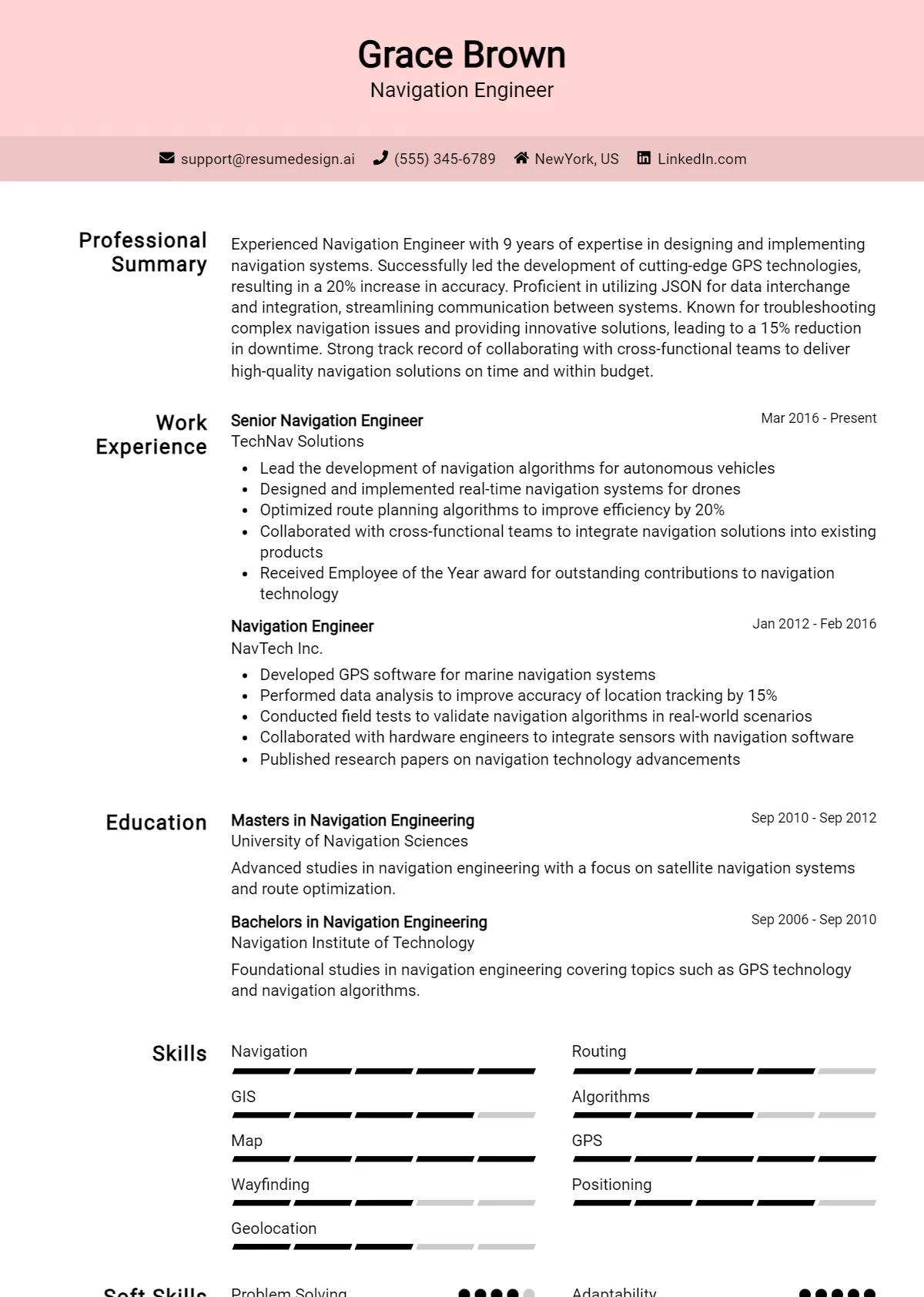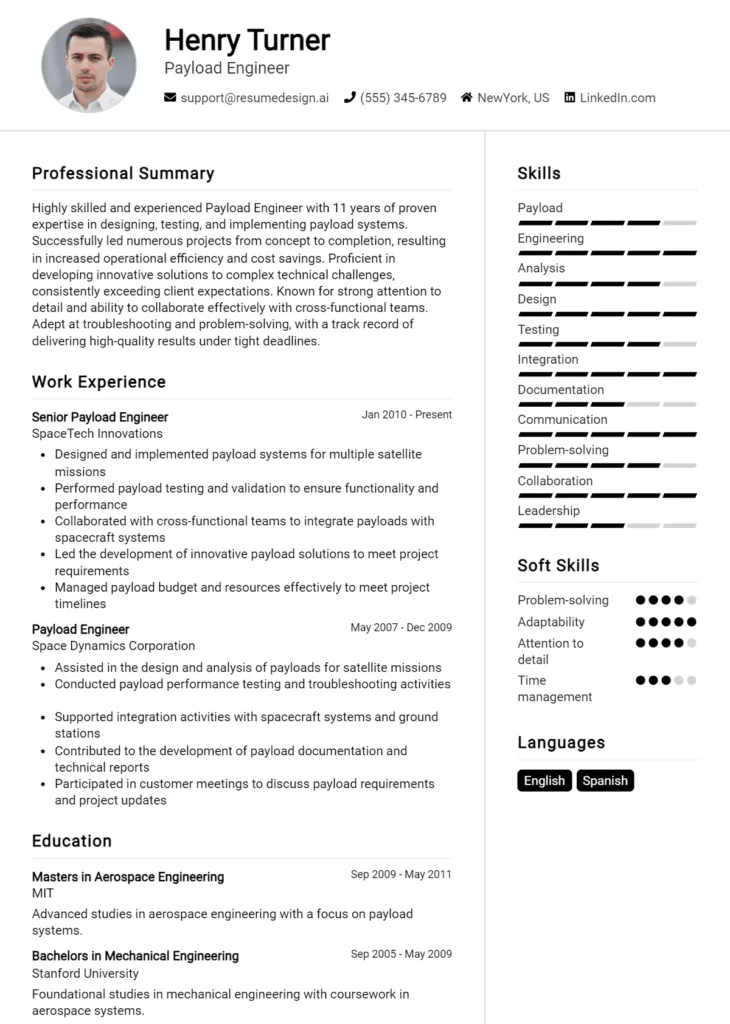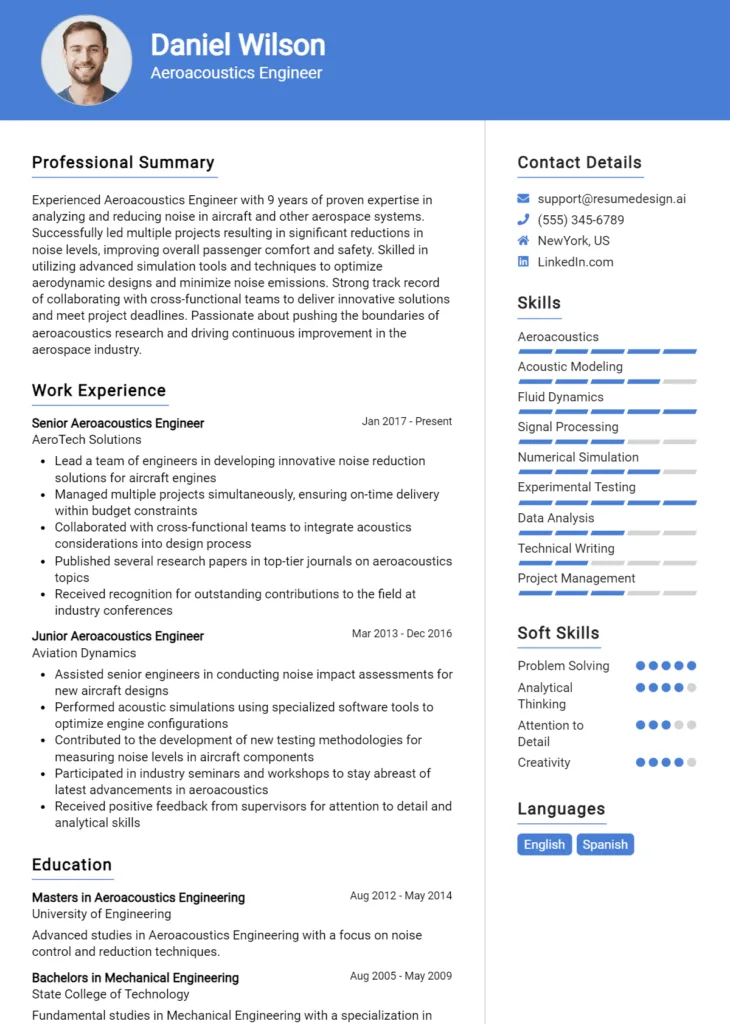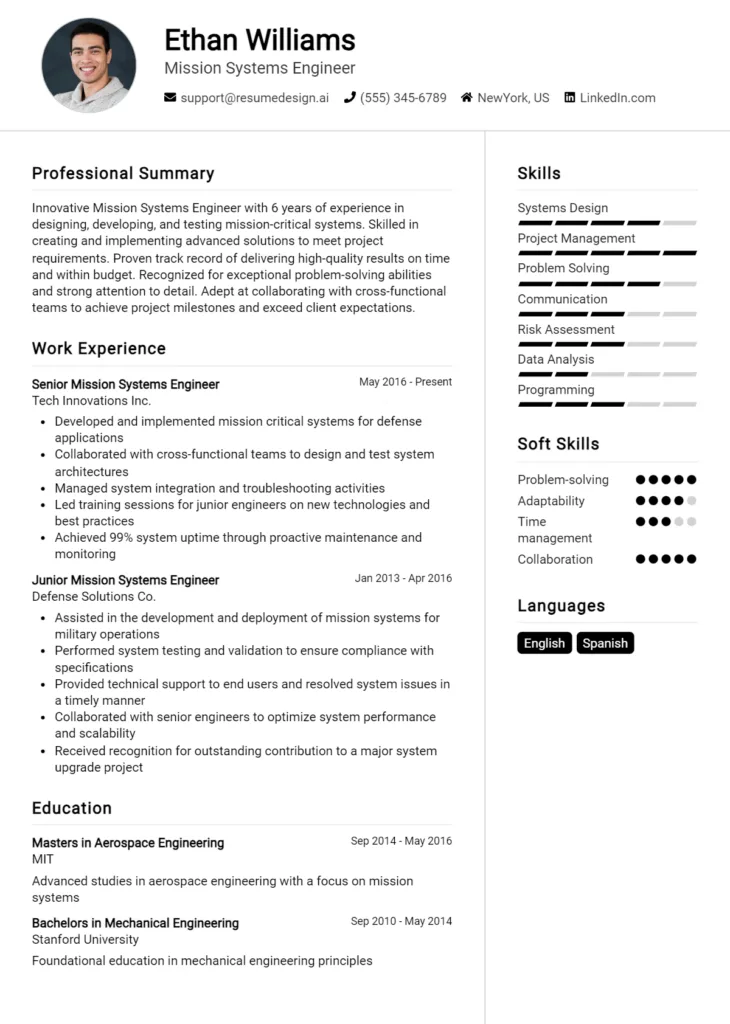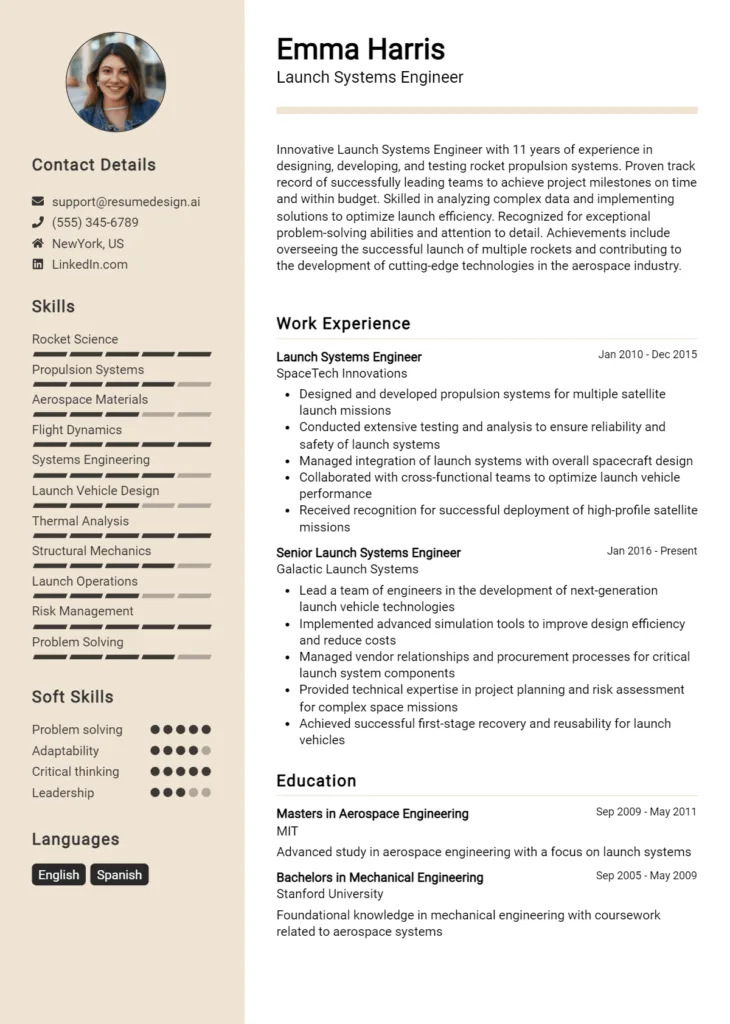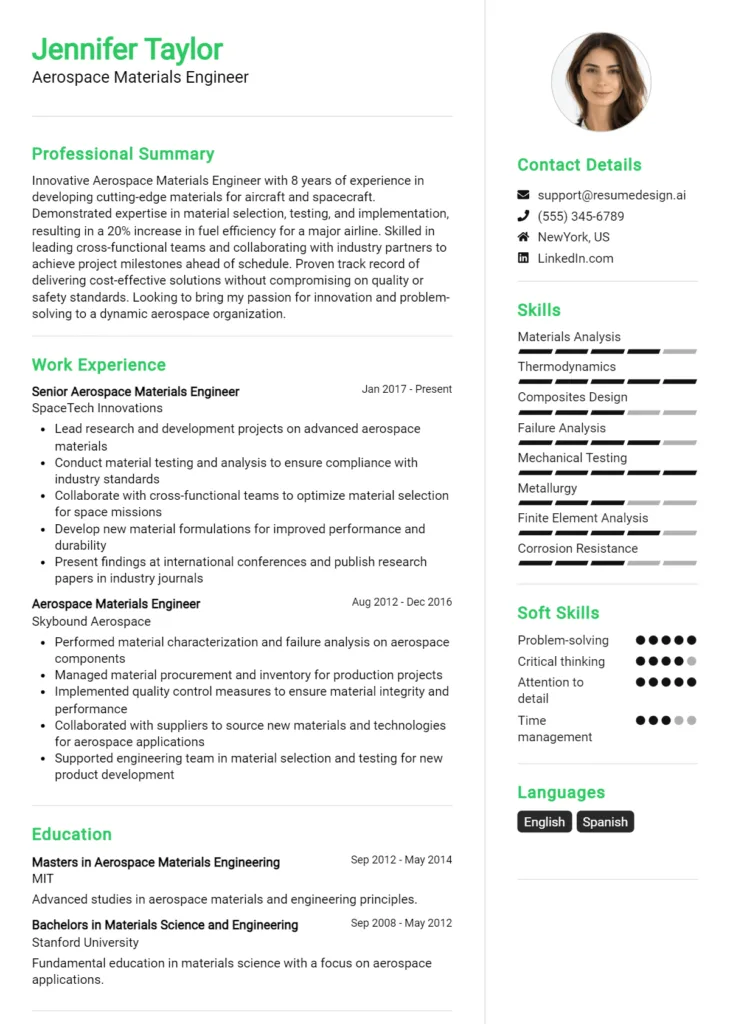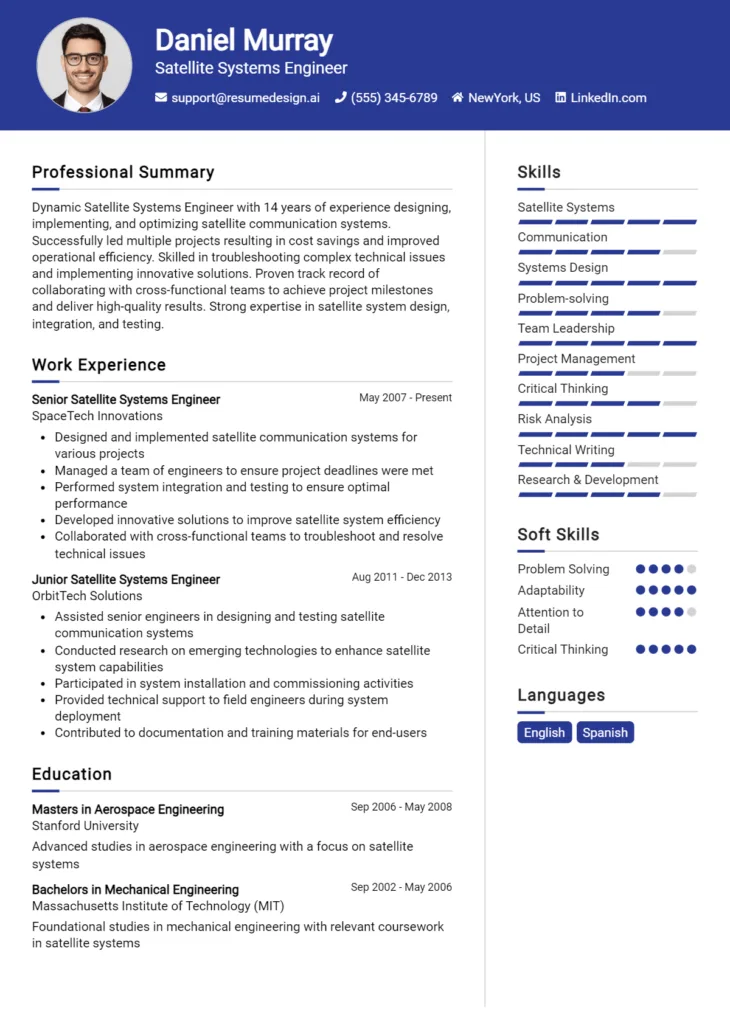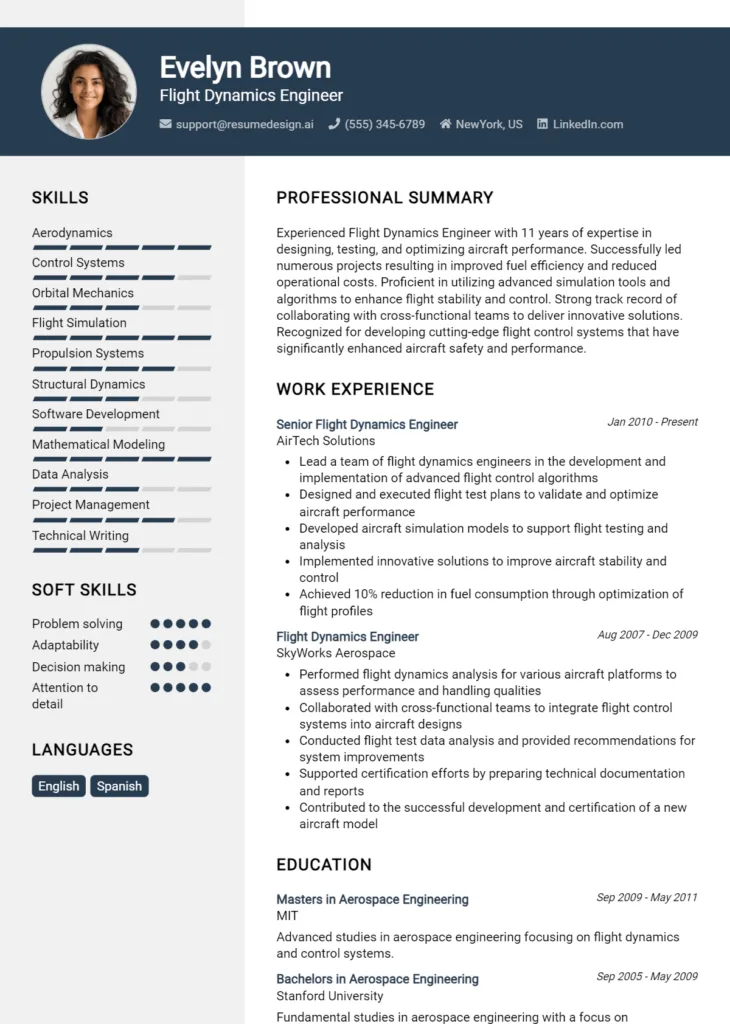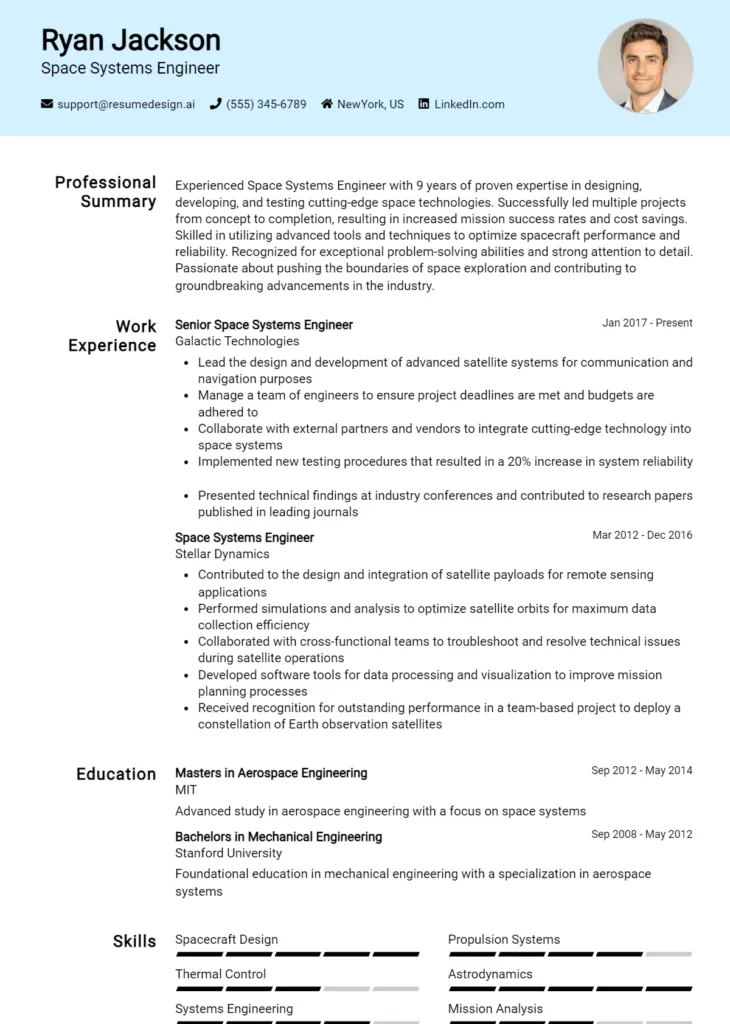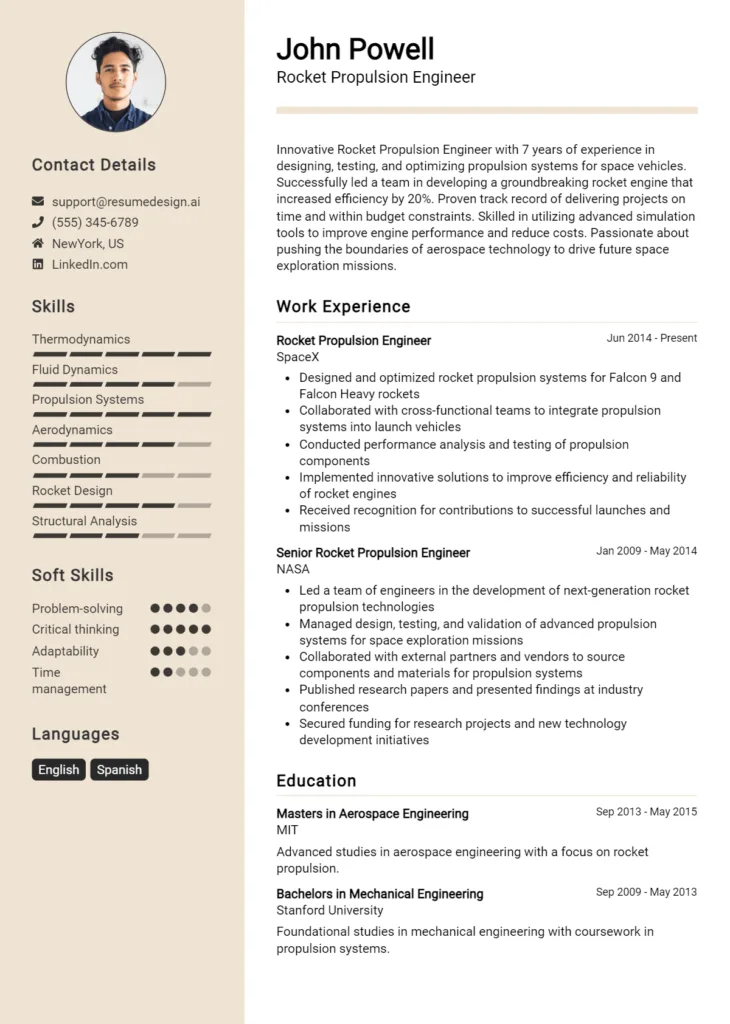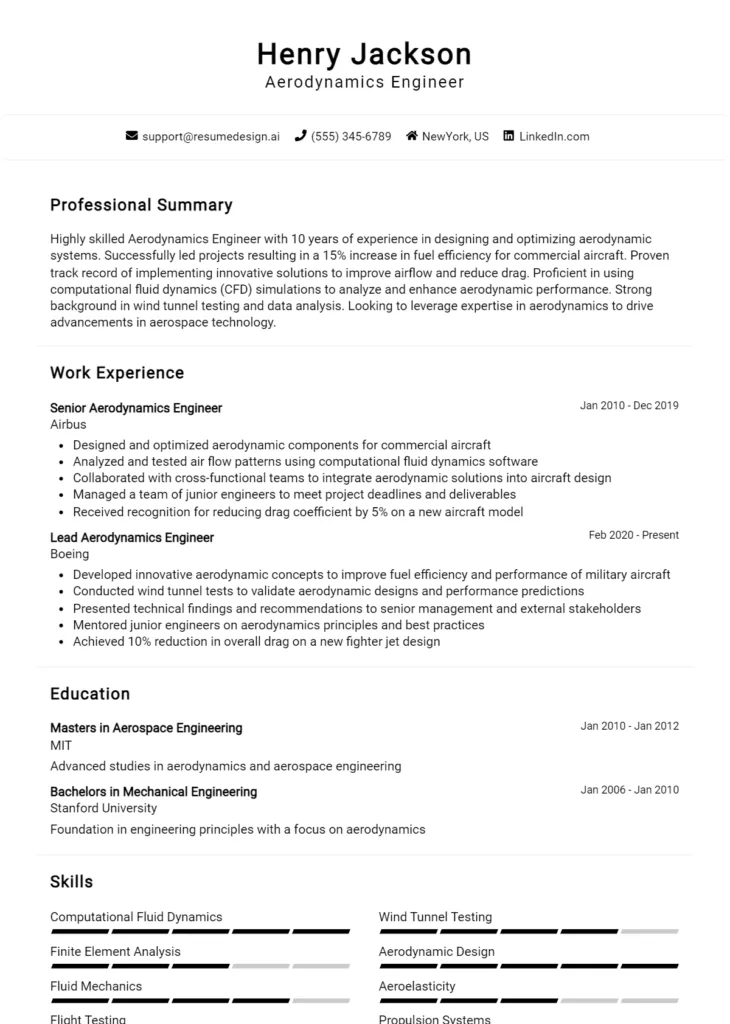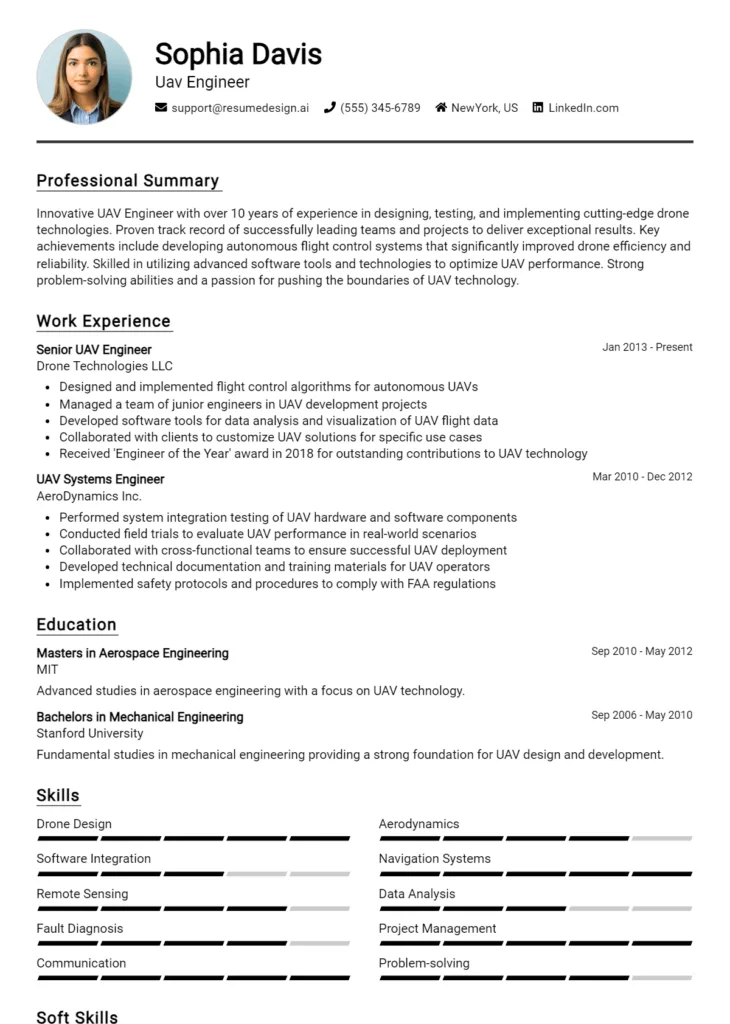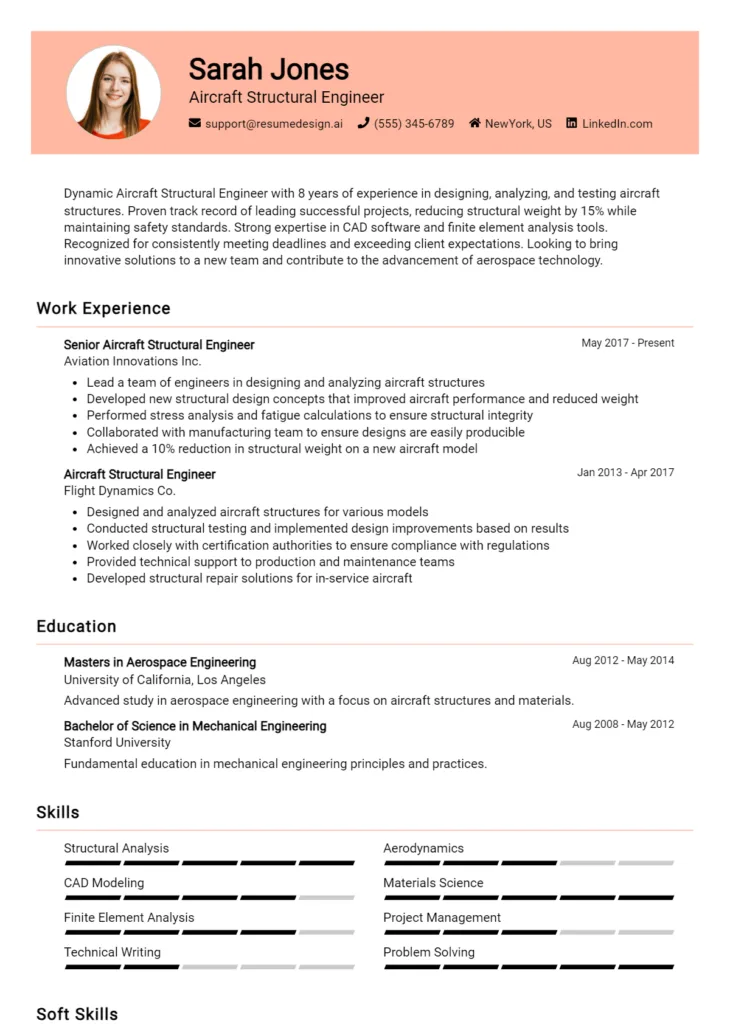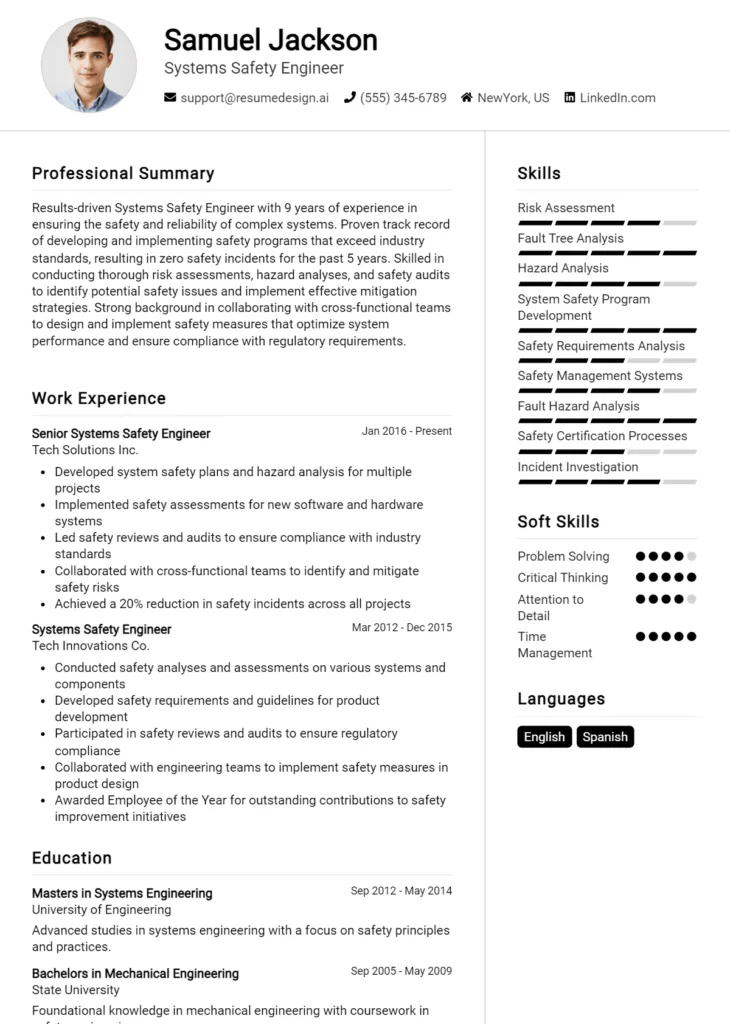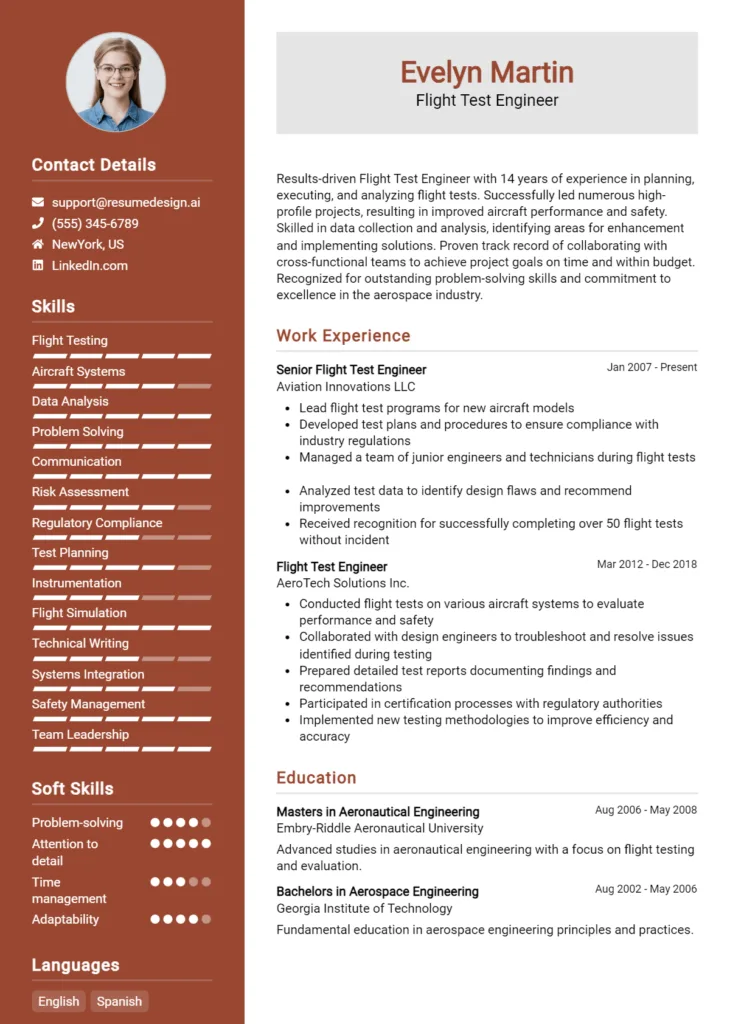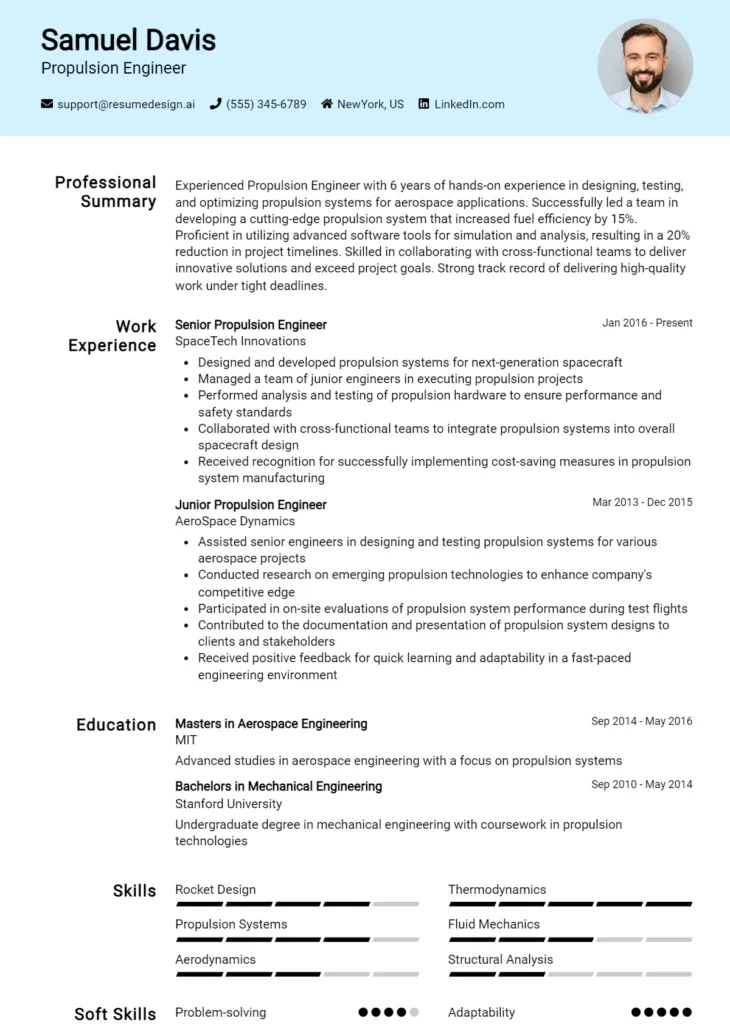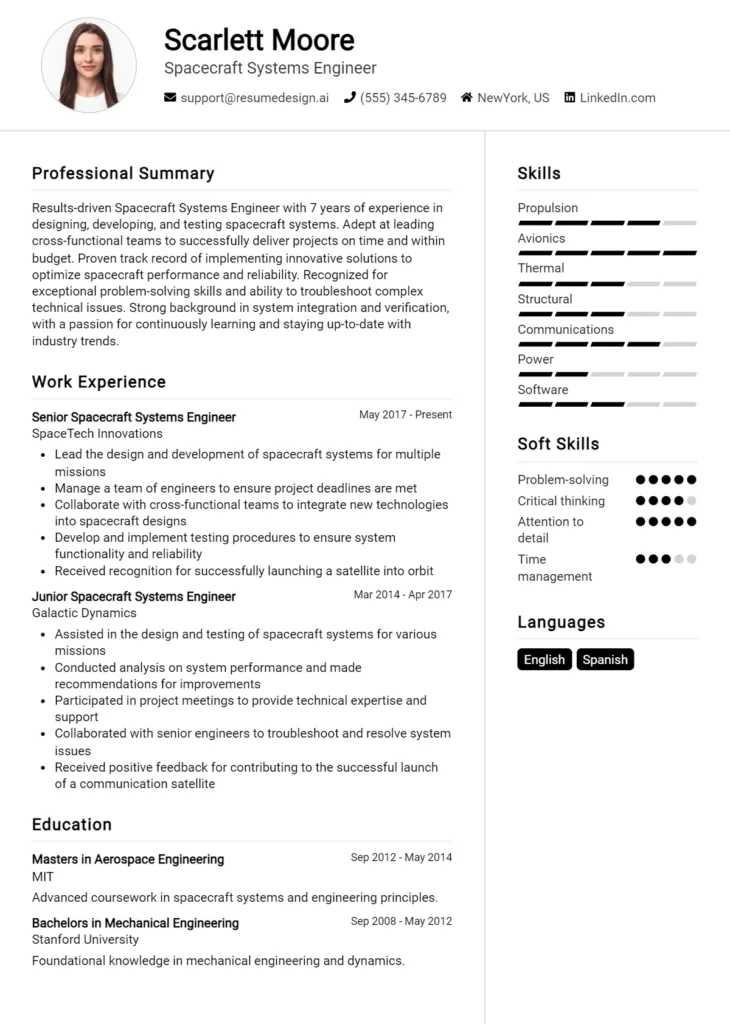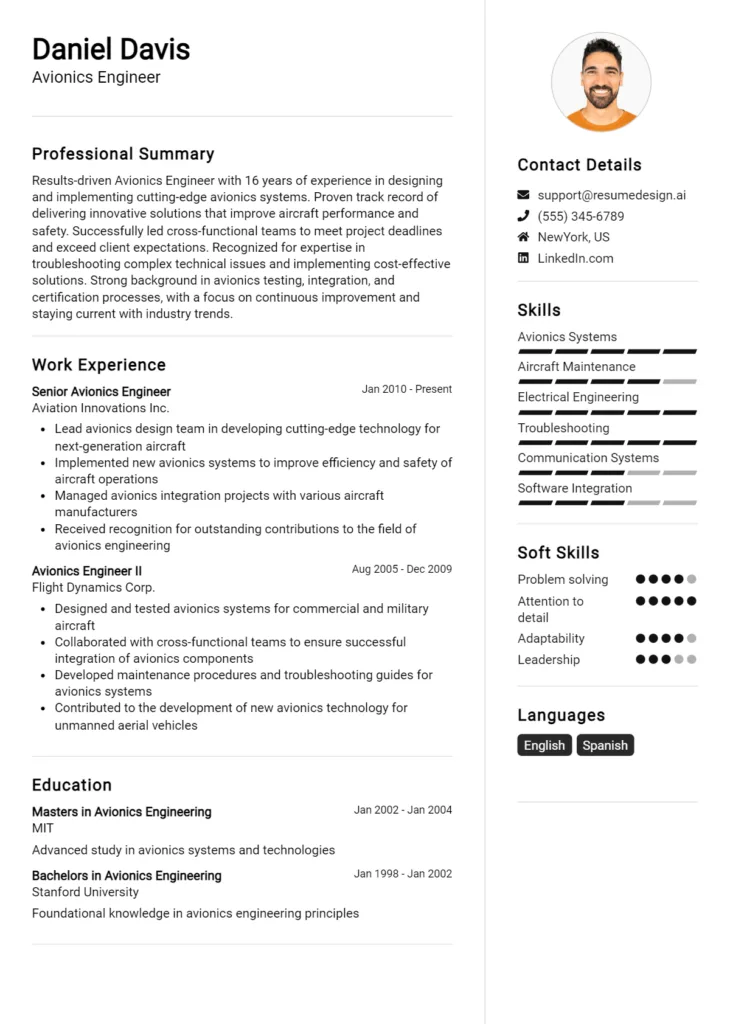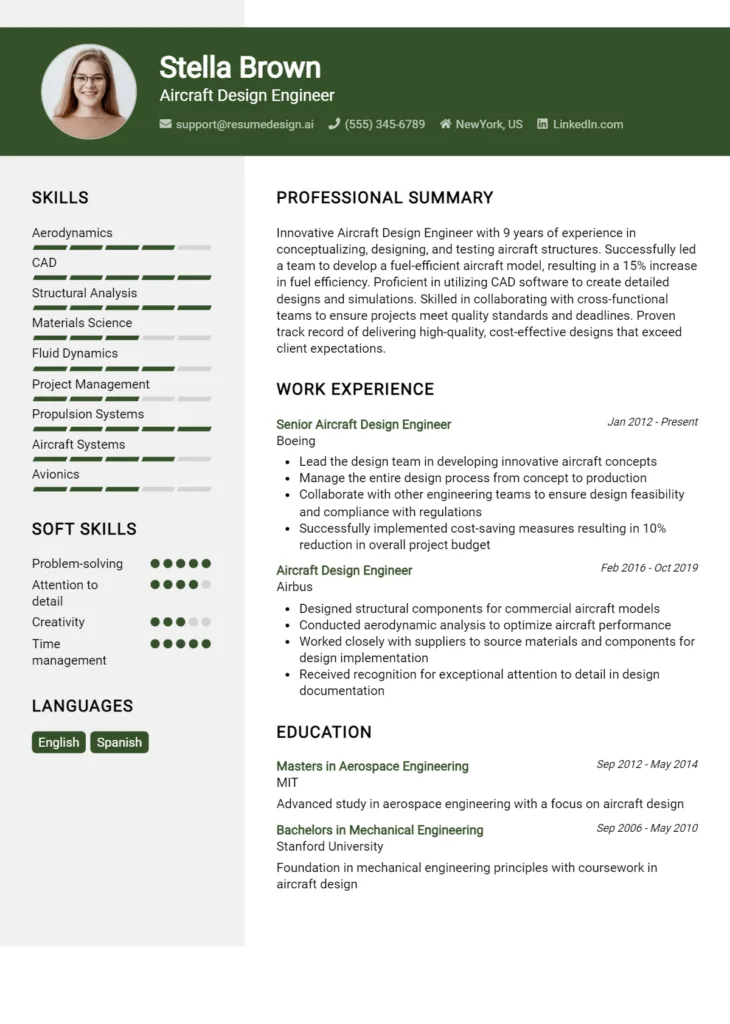Navigation Engineer Core Responsibilities
A Navigation Engineer plays a critical role in designing and implementing navigation systems, ensuring accurate positioning and routing for various applications. This position requires strong technical skills in software development, systems integration, and data analysis, alongside operational expertise to collaborate effectively with other departments, such as IT, project management, and operations. Problem-solving abilities are essential to troubleshoot issues and optimize system performance. A well-structured resume can effectively highlight these qualifications, demonstrating how they contribute to the organization's overarching goals.
Common Responsibilities Listed on Navigation Engineer Resume
- Design and develop navigation algorithms and systems.
- Conduct feasibility studies for navigation technology integration.
- Collaborate with software and hardware teams to ensure system compatibility.
- Analyze and interpret data to optimize navigation solutions.
- Test and validate navigation systems for accuracy and reliability.
- Provide technical support and training to team members.
- Monitor and troubleshoot navigation system performance.
- Document system specifications and operational procedures.
- Stay updated on advancements in navigation technology.
- Participate in cross-functional meetings to align objectives.
- Assist in project management and resource allocation.
- Ensure compliance with industry standards and regulations.
High-Level Resume Tips for Navigation Engineer Professionals
In the competitive field of Navigation Engineering, a well-crafted resume is not just a formality; it is your first opportunity to make a lasting impression on potential employers. Your resume serves as a reflection of your skills, achievements, and professional narrative, conveying your capability to navigate complex challenges in this specialized industry. As hiring managers often sift through numerous applications, a standout resume can set you apart and highlight your unique qualifications. This guide will provide practical and actionable resume tips specifically tailored for Navigation Engineer professionals, ensuring that your application shines in the eyes of recruiters.
Top Resume Tips for Navigation Engineer Professionals
- Tailor your resume to match the job description by incorporating keywords and phrases that reflect the specific requirements of the position.
- Showcase relevant experience by emphasizing projects and roles that directly relate to navigation systems, geospatial technologies, or related fields.
- Quantify your achievements by including metrics such as project completion times, budget savings, or improvements in navigation accuracy.
- Highlight industry-specific skills such as proficiency with navigation software, geodesy, cartography, and data analysis tools.
- Include certifications and licenses relevant to the navigation engineering field, such as GPS certification or professional engineering licenses.
- Utilize a clean and professional format that enhances readability, making it easy for hiring managers to scan your qualifications quickly.
- Incorporate a summary statement at the top of your resume that succinctly captures your career objectives and key skills.
- Demonstrate problem-solving abilities by providing examples of how you have addressed challenges in previous projects or roles.
- Keep your resume focused and concise, ideally limited to one or two pages, to maintain the reader's attention.
- Include a section for ongoing education or professional development to show your commitment to staying current in the field.
By implementing these tips, you can significantly increase your chances of landing a job in the Navigation Engineer field. A focused and strategically crafted resume not only highlights your qualifications but also demonstrates your commitment to the profession, making you a standout candidate in a competitive job market.
Why Resume Headlines & Titles are Important for Navigation Engineer
In the competitive field of navigation engineering, crafting an effective resume is essential to stand out among numerous applicants. One of the most critical components of a resume is the headline or title, which serves as the first impression for hiring managers. A strong headline captures attention immediately and encapsulates a candidate's key qualifications in a succinct, impactful phrase. It should be concise, relevant, and directly related to the job being applied for, ensuring that it resonates with the specific requirements of the navigation engineering role. A well-crafted headline not only highlights expertise but also sets the tone for the rest of the resume, making it a vital element in the job application process.
Best Practices for Crafting Resume Headlines for Navigation Engineer
- Keep it concise: Aim for a headline that is brief yet informative, ideally one to two lines long.
- Be role-specific: Tailor the headline to reflect the specific position of Navigation Engineer you are applying for.
- Highlight key skills: Incorporate important technical skills or certifications relevant to navigation engineering.
- Use action verbs: Start your headline with strong action verbs that convey your capabilities and achievements.
- Showcase accomplishments: If possible, include quantifiable achievements that demonstrate your impact in previous roles.
- Stay professional: Maintain a formal tone and avoid overly casual language that may undermine your qualifications.
- Include keywords: Use industry-specific keywords that align with the job description to enhance visibility.
- Avoid jargon: Ensure that the language is accessible and understandable to a broad audience, avoiding overly technical terms.
Example Resume Headlines for Navigation Engineer
Strong Resume Headlines
"Experienced Navigation Engineer with 7+ Years in GPS and Geospatial Solutions"
“Certified Navigation Engineer Specializing in Automated Systems and Algorithm Development”
“Results-Driven Navigation Engineer with Expertise in Maritime and Aerial Navigation Systems”
“Innovative Navigation Engineer Focused on Enhancing Accuracy in High-Stakes Environments”
Weak Resume Headlines
“Engineer Looking for Job”
“Navigation Engineer Seeking Opportunities”
“Professional with Engineering Skills”
Strong headlines are effective because they are specific, highlight key qualifications, and immediately communicate the candidate's expertise to potential employers. They provide a clear snapshot of what the candidate brings to the table, making it easier for hiring managers to identify suitable candidates quickly. Conversely, weak headlines fail to impress due to their vague and generic nature, failing to convey any unique qualifications or insights into the candidate’s abilities. This lack of specificity can lead to potential employers overlooking these resumes in favor of those with more compelling and targeted headlines.
Writing an Exceptional Navigation Engineer Resume Summary
A well-crafted resume summary is crucial for a Navigation Engineer, as it serves as a powerful introduction that can quickly capture the attention of hiring managers. In a competitive job market, your summary should effectively showcase your key skills, relevant experience, and notable accomplishments in the field of navigation engineering. A strong summary is concise and impactful, tailored specifically to the job you're applying for, allowing you to make an immediate impression that can set the tone for the rest of your resume.
Best Practices for Writing a Navigation Engineer Resume Summary
- Quantify achievements: Use numbers and metrics to demonstrate your impact and success in previous roles.
- Focus on relevant skills: Highlight technical competencies and soft skills that are directly applicable to navigation engineering.
- Tailor the summary: Customize your summary to reflect the specific requirements and keywords found in the job description.
- Be concise: Aim for 3-5 sentences that clearly articulate your value without unnecessary fluff.
- Use action verbs: Start sentences with strong action verbs to convey confidence and proactivity.
- Showcase industry knowledge: Reference relevant technologies, methodologies, or standards that align with the job role.
- Maintain professionalism: Keep the tone formal and focused on your professional achievements rather than personal attributes.
- Update regularly: Revise your summary periodically to reflect new skills, experiences, or changes in your career objectives.
Example Navigation Engineer Resume Summaries
Strong Resume Summaries
Results-driven Navigation Engineer with over 5 years of experience in developing advanced navigation systems for autonomous vehicles. Successfully led a project that improved route accuracy by 30%, utilizing innovative algorithms and real-time data integration.
Dynamic Navigation Engineer skilled in GPS and inertial navigation systems, with a proven track record of enhancing system performance by 25% in high-stakes environments. Adept at collaborating with cross-functional teams to deliver projects on time and within budget.
Detail-oriented Navigation Engineer with expertise in maritime navigation technologies. Achieved a 40% reduction in operational costs by implementing state-of-the-art navigation solutions, ensuring compliance with international maritime regulations.
Weak Resume Summaries
Experienced engineer looking for a navigation position. I have skills in various technologies and enjoy working with teams.
Navigation Engineer with some experience in the field. I am interested in applying my knowledge to new projects and challenges.
The strong resume summaries are effective because they contain specific accomplishments, quantify results, and use relevant terminology that aligns with the navigation engineering field. They clearly demonstrate the candidate's value and suitability for the role. In contrast, the weak summaries lack detail and specificity, making them generic and less compelling. They fail to convey the candidate's unique contributions or skills, which are essential for standing out in a competitive job market.
Work Experience Section for Navigation Engineer Resume
The work experience section is a critical component of a Navigation Engineer resume, as it serves to illustrate the candidate's technical proficiency, project management capabilities, and success in delivering high-quality navigation solutions. This section not only showcases the candidate's hands-on experience with navigation systems and technologies but also emphasizes their ability to lead teams effectively and achieve measurable results. By quantifying achievements and aligning their experience with industry standards, candidates can present a compelling case to potential employers, demonstrating their value and expertise in the field.
Best Practices for Navigation Engineer Work Experience
- Highlight relevant technical skills directly related to navigation engineering, such as GNSS, inertial navigation systems, and software development.
- Use quantifiable metrics to demonstrate the impact of your work, such as percentage improvements in system accuracy or reductions in processing time.
- Detail collaborative projects that required teamwork across departments, emphasizing your role and contributions.
- Showcase leadership experiences, including mentoring junior engineers or leading project teams.
- Align your experiences with industry standards and best practices to show your knowledge of current trends and technologies.
- Utilize action verbs to describe your responsibilities and achievements, making your contributions clear and impactful.
- Include relevant certifications or training that enhance your qualifications as a Navigation Engineer.
- Tailor your work experience to the specific job you are applying for, ensuring the most relevant experiences are highlighted.
Example Work Experiences for Navigation Engineer
Strong Experiences
- Led a cross-functional team in the development of a new GNSS-based navigation system, resulting in a 30% increase in positioning accuracy for end-users.
- Implemented a real-time data processing algorithm that reduced latency by 40%, significantly improving the user experience for autonomous vehicle navigation.
- Collaborated with software developers and hardware engineers to design and deploy a navigation system for commercial drones, achieving a successful launch within budget and ahead of schedule.
- Mentored a team of five junior engineers, leading to a 50% improvement in their project delivery timelines and enhancing overall team performance.
Weak Experiences
- Worked on navigation projects.
- Assisted in the development of navigation systems.
- Participated in team meetings to discuss project progress.
- Helped with testing and data collection.
The examples provided illustrate the distinction between strong and weak work experiences. Strong experiences are characterized by specific, quantifiable outcomes and clear demonstrations of leadership and collaboration. They provide context and detail that highlight the candidate's direct contributions and their impact on projects. In contrast, weak experiences lack specificity and fail to convey meaningful achievements, making it difficult for potential employers to assess the candidate's capabilities effectively.
Education and Certifications Section for Navigation Engineer Resume
The Education and Certifications section of a Navigation Engineer resume plays a crucial role in establishing a candidate's qualifications and expertise in the field. This section not only highlights the academic background that provides the foundational knowledge necessary for navigation engineering but also showcases industry-relevant certifications that demonstrate a commitment to professional development and adherence to best practices. By including relevant coursework, certifications, and specialized training, candidates can significantly enhance their credibility and align themselves more closely with the specific demands of the job role, making a strong case for their candidacy.
Best Practices for Navigation Engineer Education and Certifications
- Prioritize relevant degrees such as a Bachelor's or Master's in Navigation Engineering, Geomatics, or related fields.
- List industry-recognized certifications such as GPS, GNSS, or relevant software tools.
- Include specific coursework that directly relates to navigation systems, geodesy, or signal processing.
- Highlight any continuing education courses or workshops that demonstrate ongoing learning.
- Provide details about training from reputable organizations that focus on navigation technologies.
- Use clear and concise formatting to make the section easy to read and navigate.
- Emphasize any specialized skills or knowledge that set you apart from other candidates.
- Consider including professional affiliations or memberships in relevant organizations.
Example Education and Certifications for Navigation Engineer
Strong Examples
- Bachelor of Science in Geomatics Engineering, University of XYZ, 2020
- Certified GPS Specialist, GPS Certification Board, 2021
- Coursework: Advanced Navigation Systems, Signal Processing for Navigation, and Geodesy Fundamentals
- Completion of GNSS Techniques Workshop, Institute of Navigation, 2022
Weak Examples
- Associate Degree in General Studies, Community College, 2018
- Certification in Basic Computer Skills, Online Course, 2019
- Coursework: Introduction to Psychology and Art History
- Old Certification in Surveying Techniques, 2015 (no longer recognized)
The strong examples are considered effective because they include relevant degrees and certifications that demonstrate a clear alignment with the Navigation Engineer role, reflecting both the necessary educational background and specialized training. In contrast, the weak examples lack relevance to the field of navigation engineering, showcasing generic or outdated qualifications that do not support the candidate's suitability for the position. This clear distinction illustrates how critical it is to present educational and certification information that enhances a candidate's profile for the desired job role.
Top Skills & Keywords for Navigation Engineer Resume
As a Navigation Engineer, possessing the right skills is critical for success in the role. A well-crafted resume that highlights both hard and soft skills can set you apart in a competitive job market. Skills not only demonstrate your technical expertise but also reflect your ability to work effectively in team environments, manage projects, and solve complex problems. Employers look for candidates who not only understand navigation systems and technologies but can also communicate effectively and adapt to changing conditions. By showcasing your relevant skills, you can effectively communicate your qualifications and potential contributions to prospective employers.
Top Hard & Soft Skills for Navigation Engineer
Soft Skills
- Problem-solving
- Communication
- Team collaboration
- Adaptability
- Attention to detail
- Project management
- Analytical thinking
- Time management
- Critical thinking
- Creativity
Hard Skills
- GPS technology proficiency
- Software development (e.g., C++, Python)
- Geographic Information Systems (GIS)
- Signal processing
- Sensor integration
- Data analysis
- Navigation algorithms
- Modeling and simulation techniques
- Robotics and autonomous systems
- Familiarity with aviation and maritime regulations
For more detailed insights on how to effectively present your skills and work experience, make sure to explore additional resources that can enhance your resume.
Stand Out with a Winning Navigation Engineer Cover Letter
Dear Hiring Manager,
I am writing to express my enthusiasm for the Navigation Engineer position at [Company Name], as advertised on [Where You Found the Job Posting]. With a solid background in geospatial technologies, combined with my hands-on experience in developing advanced navigation systems, I am confident in my ability to contribute effectively to your team. My academic qualifications, including a Master’s degree in Geomatics Engineering, paired with over five years of practical experience in the field, have equipped me with a comprehensive skill set that aligns perfectly with the needs of your organization.
In my previous role at [Previous Company Name], I was responsible for designing and implementing high-precision navigation solutions for various applications, including autonomous vehicles and UAVs. I successfully led a project that enhanced the accuracy of GPS systems by integrating real-time data from multiple sources, resulting in a 30% improvement in positioning accuracy. My proficiency in utilizing software tools such as MATLAB, Python, and various GIS applications has enabled me to analyze complex datasets and develop innovative algorithms that optimize navigation performance.
I am particularly drawn to [Company Name] due to your commitment to leveraging cutting-edge technology to solve real-world navigation challenges. I admire your recent initiatives in integrating machine learning with traditional navigation systems, and I am eager to bring my expertise in data fusion and algorithm development to your team. I believe that my proactive approach and problem-solving skills would be valuable assets in driving the success of your projects and helping to push the boundaries of navigation technology.
Thank you for considering my application. I look forward to the opportunity to discuss how my background and skills can be an asset to [Company Name]. I am excited about the possibility of contributing to your innovative team and am eager to bring my passion for navigation engineering to your esteemed organization.
Sincerely,
[Your Name]
[Your Contact Information]
Common Mistakes to Avoid in a Navigation Engineer Resume
Crafting a resume as a Navigation Engineer requires a careful approach, as this role demands a blend of technical skills and attention to detail. Many candidates make common mistakes that can detract from their qualifications and experiences. Avoiding these pitfalls can significantly enhance the effectiveness of your resume and improve your chances of landing an interview.
Neglecting Specific Technical Skills: Failing to highlight relevant technical skills like GPS technology, navigation algorithms, or software proficiency can undermine your qualifications. Be specific about the tools and technologies you’ve worked with.
Using Generic Job Descriptions: Listing job responsibilities without tailoring them to the Navigation Engineer role can make your resume blend in. Use specific examples that showcase your contributions and achievements in previous positions.
Overlooking Certifications and Education: Not mentioning relevant certifications (like a Professional Engineer license) or specialized training can be a missed opportunity. Make sure to include any qualifications that set you apart.
Ignoring Quantifiable Achievements: Resumes that lack measurable outcomes fail to demonstrate your impact. Use metrics to quantify your successes, such as improved efficiency percentages or reduced navigational errors.
Poor Formatting and Clarity: A cluttered or confusing layout can make it difficult for recruiters to find key information. Use clear headings, bullet points, and consistent formatting to enhance readability.
Failing to Customize for Each Application: Sending out a one-size-fits-all resume can diminish your chances. Tailor your resume to align with the specific requirements and keywords from the job description.
Not Including Relevant Projects: Omitting significant projects or case studies can result in a lack of depth in your experience. Highlight key projects that demonstrate your skills and problem-solving abilities in navigation.
Ignoring Soft Skills: Navigation Engineers often work in teams and must communicate effectively. Failing to mention soft skills like teamwork, problem-solving, and communication can overlook essential aspects of your candidacy.
Conclusion
As a Navigation Engineer, your role is integral to the development and implementation of navigation systems that enhance safety and efficiency in transportation. Throughout this article, we've discussed the essential skills required for this position, including proficiency in various navigation technologies, analytical thinking, and problem-solving abilities. We also highlighted the importance of staying updated with the latest industry trends and technologies to remain competitive in the field.
In summary, ensuring your resume effectively showcases your technical skills, relevant experience, and professional accomplishments is crucial for landing your desired position as a Navigation Engineer. Now is the perfect time to review and refine your resume to make a lasting impression on potential employers.
To assist you in this endeavor, consider utilizing available resources like resume templates, which can provide a professional layout and structure for your information. Additionally, a resume builder can streamline the process, allowing you to create a polished resume quickly. Check out resume examples for inspiration on how to effectively present your qualifications. Finally, don't overlook the importance of a strong first impression with a well-crafted cover letter—explore our cover letter templates to help you get started.
Take action now: review your Navigation Engineer resume and leverage these tools to enhance your job application!

